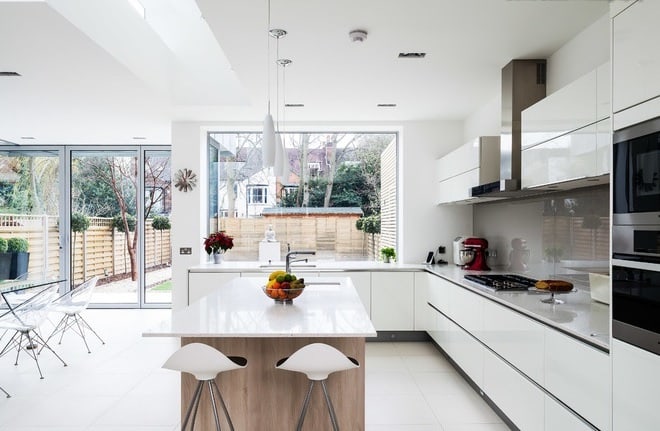Porcelain Worktops Pricing
Porcelain worktops are rapidly gaining traction in UK households, representing both functionality and luxury. Made from natural clay, porcelain is fired at incredibly high temperatures to produce a worktop material that’s both robust and aesthetically pleasing. Benefits of porcelain include its incredible durability, resistance to heat, scratches, and stains, as well as its waterproof qualities, making it perfect for kitchens and bathrooms. Its versatile nature, however, means that there are many different factors that influence the pricing of porcelain worktops, and it’s important to be aware of these when making your choice.
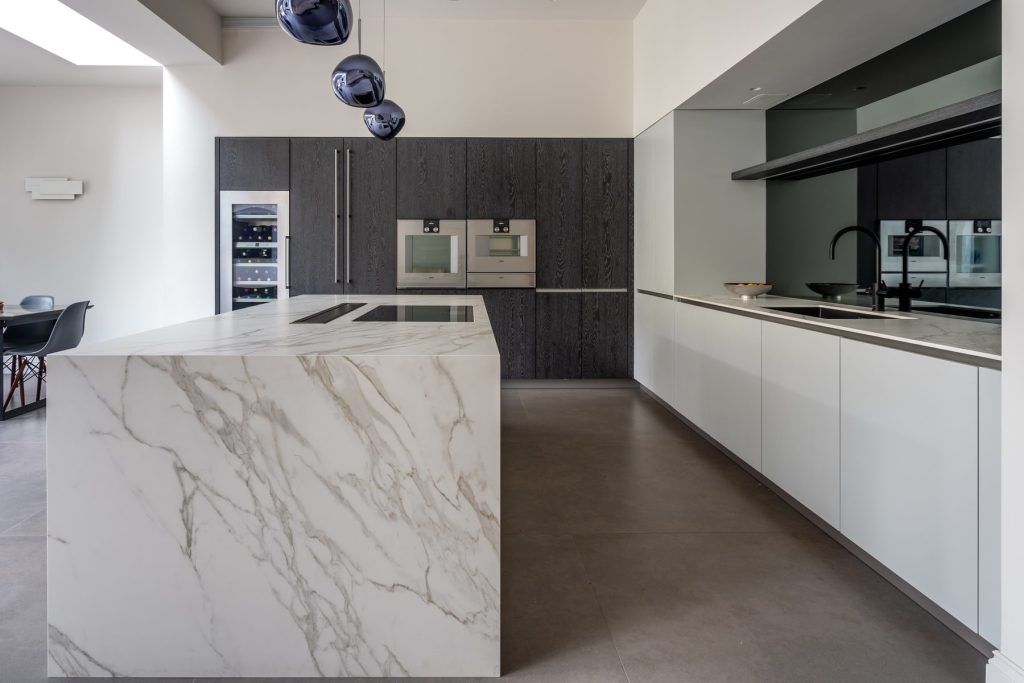
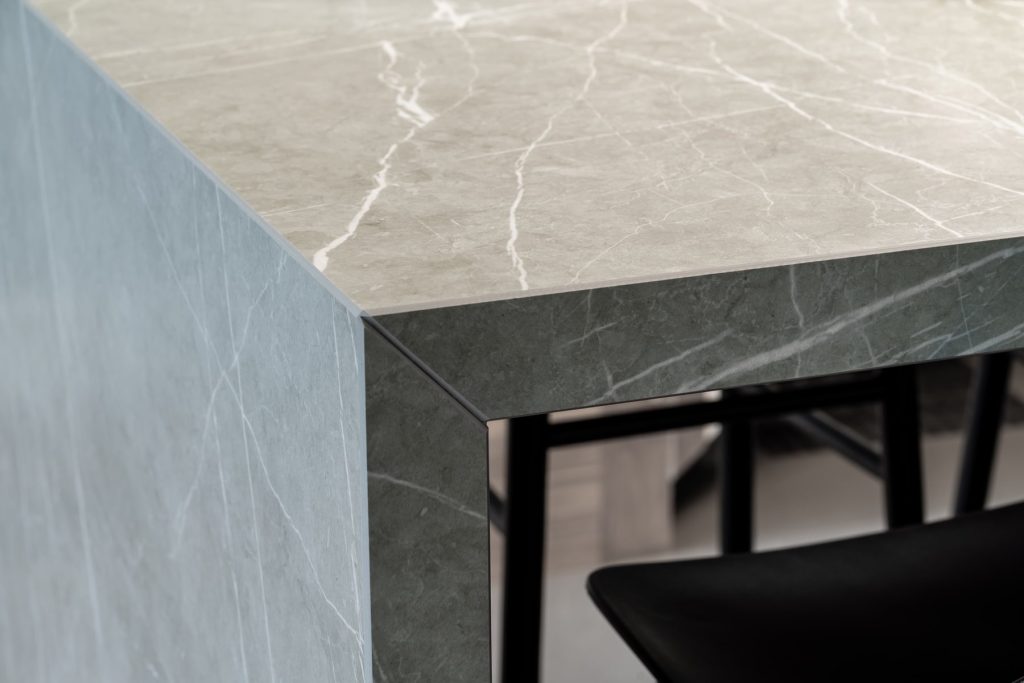
What is The Average Cost of Porcelain Worktops in the UK?
In the UK, it can be difficult to estimate an average cost for porcelain worktops due to the different factors that influence its pricing. Typically, prices will range from £250 to £450 per square metre, with certain luxury brands or designs potentially costing much more. It’s worth noting that prices might also vary based on regions, with metropolitan areas like London seeing slightly higher costs due to increased demand and transportation costs.
Factors Affecting Porcelain Worktop Pricing
To help you make an informed decision, our Walthamstow worktop experts have broken down the different factors that affect the cost of porcelain worktops. When choosing your worktop, it’s important to keep each of these in mind so that you’re not caught off guard by any unexpected costs.
Quality and Brand: It should be noted that brand names in the porcelain industry can carry a higher price tag. Premium brands often ensure better quality, consistency, and unique designs. However, several lesser-known brands can offer competitive quality without the hefty price tag.
Thickness: Standard thicknesses of porcelain slabs are around 12mm to 20mm, with the latter being pricier due to increased material use.
Complexity of Job: It’s important to take into account how complex your renovation project is when choosing worktops. Custom cuts, intricate edge profiles, or unique designs are all features that can elevate the overall cost. If you’re interested in an unusual shape or design for your worktop, be prepared for a higher quote.
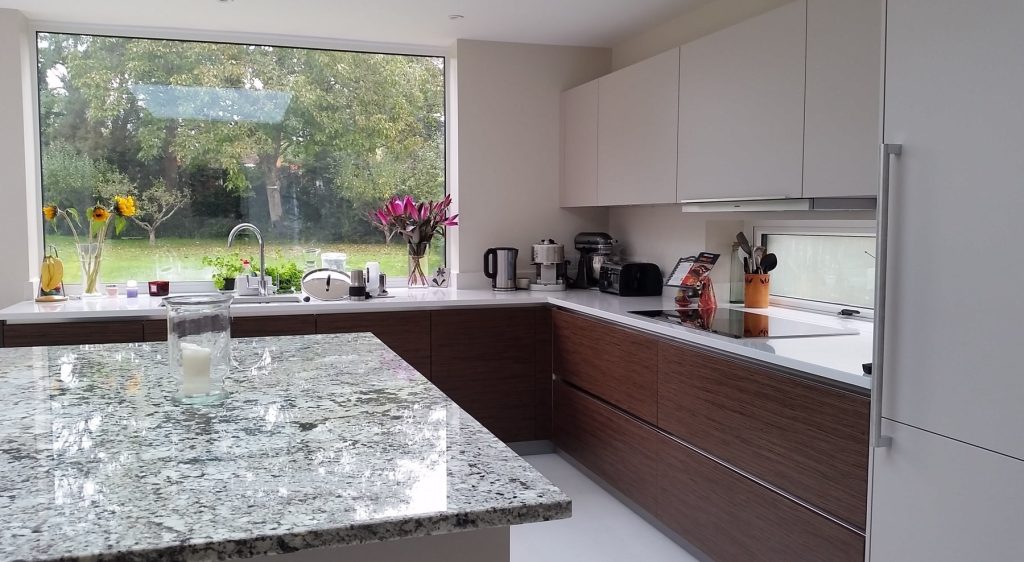
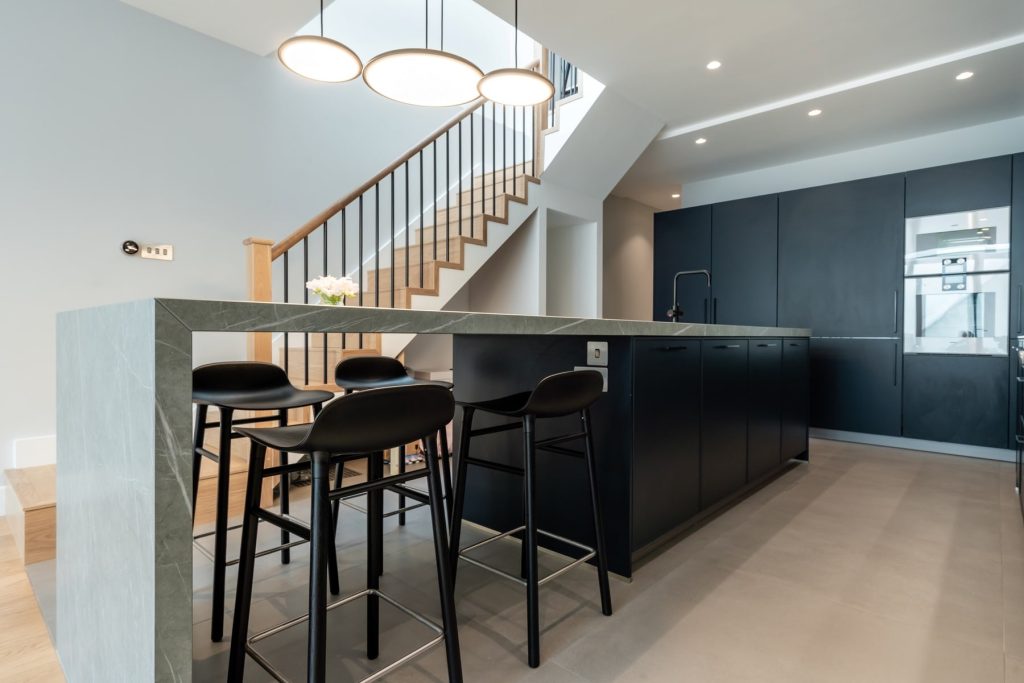
Factors Affecting Porcelain Worktop Pricing
Installation Costs: Basic worktop pricing can also increase once you take installation costs into account. On average, installation can cost around £100-£200 per square metre. Investing in a professional installation team is certainly worth it, as this will guarantee your worktop is fitted properly and lasts for years to come.
Transportation and Delivery: You should consider how your location might affect transportation costs. If your worktops are being imported or delivered to a remote area, this may increase your porcelain worktop pricing.
Additional Features: If you want to include any personalised features like undermount sinks, elegant edging profiles, or integrated backsplashes, these can all add to the overall cost.
Porcelain Worktop Costs: A Detailed Breakdown
We understand that choosing the perfect worktop for your kitchen can be a daunting decision. When trying to understand how each factor influences the overall price, it’s useful to know the details of each step in the porcelain worktop manufacturing process, since each step will have its own considerations and costs associated with it. From raw material costs to installation costs, we’ll explain each step in detail to give you a better overview of how porcelain worktop pricing is calculated.
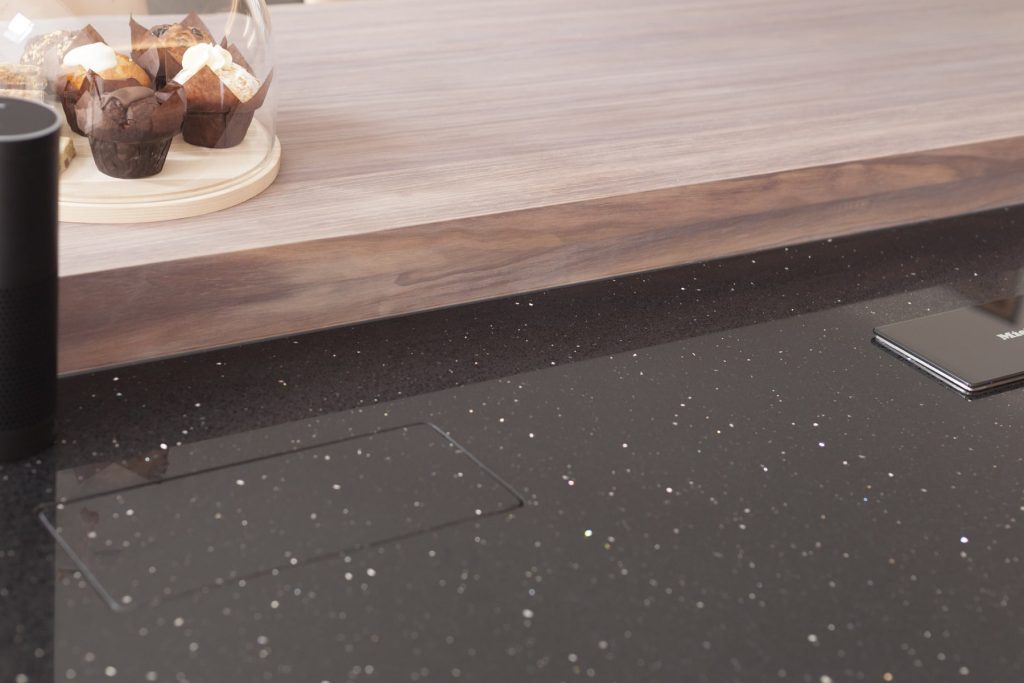
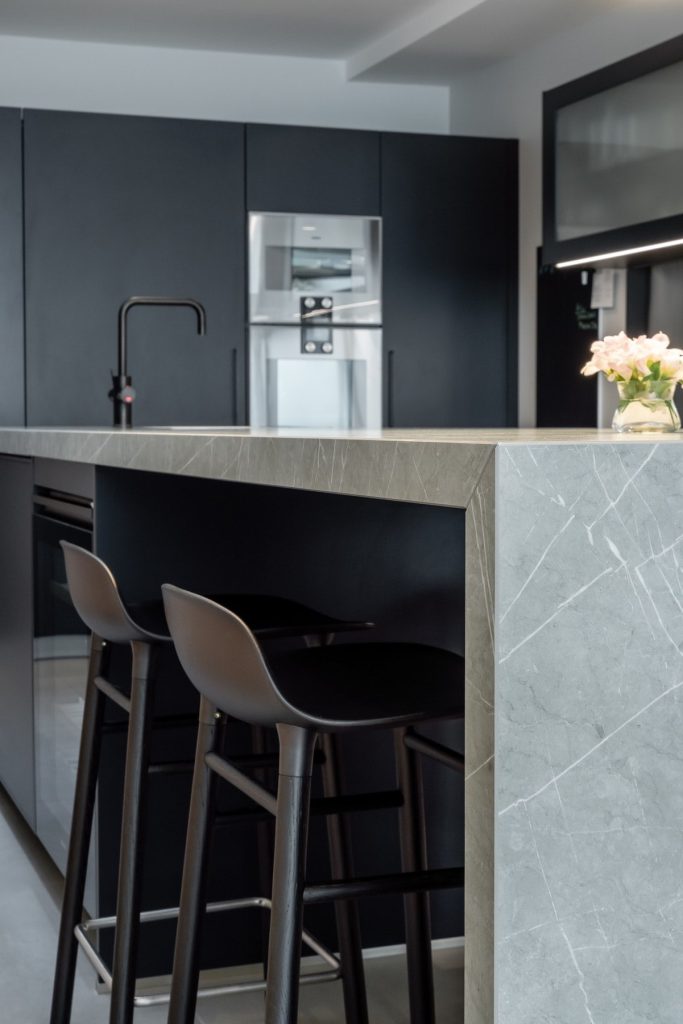
Raw Material Pricing
At the heart of every porcelain worktop lies its raw materials, primarily composed of kaolin (a type of clay), feldspar, and quartz. The procurement and quality of these materials can significantly influence the overall cost of porcelain. In the UK, while some of these materials can be locally sourced, a fair amount is imported, which will add to the expense. It’s also important to keep in mind that as the global demand for these materials rises, their prices can fluctuate, subsequently impacting the market price of porcelain worktops.
Production and Manufacturing Costs
The production process of porcelain worktops is both intricate and energy-intensive, thus influencing the cost of the slab produced for your worktop. Once the raw materials are procured, they undergo a series of processes, including grinding, mixing, and moulding. The resultant slabs are then fired at extremely high temperatures, sometimes exceeding 1,200°C, to achieve porcelain’s signature strength and durability. The energy costs associated with this process can be significant. Additionally, quality checks, waste management, and the deployment of advanced machinery also contribute to the overall production and manufacturing expenses of porcelain worktops.
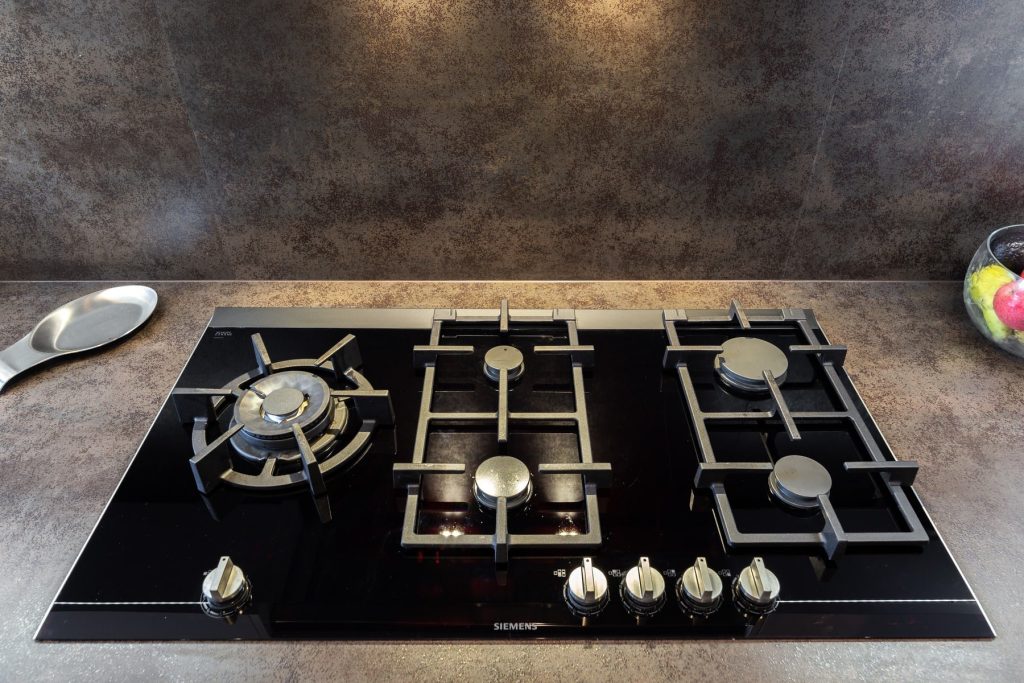
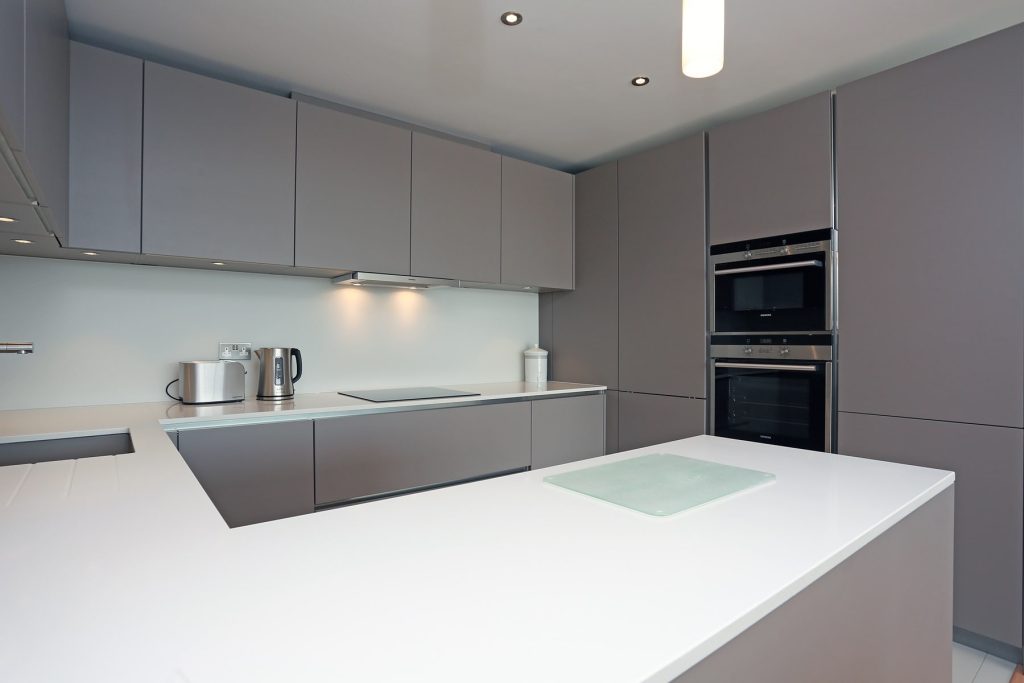
Design and Aesthetic Variation Pricing
The design versatility and aesthetic appeal of porcelain worktops can play a crucial role in determining their price. Basic designs, with uniform colours and simple patterns, tend to be more affordable. However, if you’re looking for a more intricate design that replicates the natural grains of marble or the rustic charm of wood, this might drive up your price, since intricate designs require a more sophisticated manufacturing process. The use of innovative technologies to create high-definition, realistic textures and finishes can also escalate costs. Essentially, the more bespoke and detailed the design, the higher the price will be, reflecting the craftsmanship and innovation involved.
Installation: Costs and Considerations
Installing porcelain worktops is a nuanced task that requires precision and expertise. Given the substantial weight and the potential fragility of the slabs, professional installation is a crucial step of the process. In the UK, installation costs can range anywhere from £100 to £200 per square metre, influenced by factors like the complexity of the design, number of cut-outs needed, and the location’s accessibility. It’s essential to account for potential adjustments or custom cuts, which could both elevate costs. If any specific preparation work is needed, such as removing old worktops or reinforcing cabinetry, this could also add additional expenses. When budgeting for porcelain worktops, it’s important to keep track of installation expenses, ensuring a smooth renovation process and polished final result.
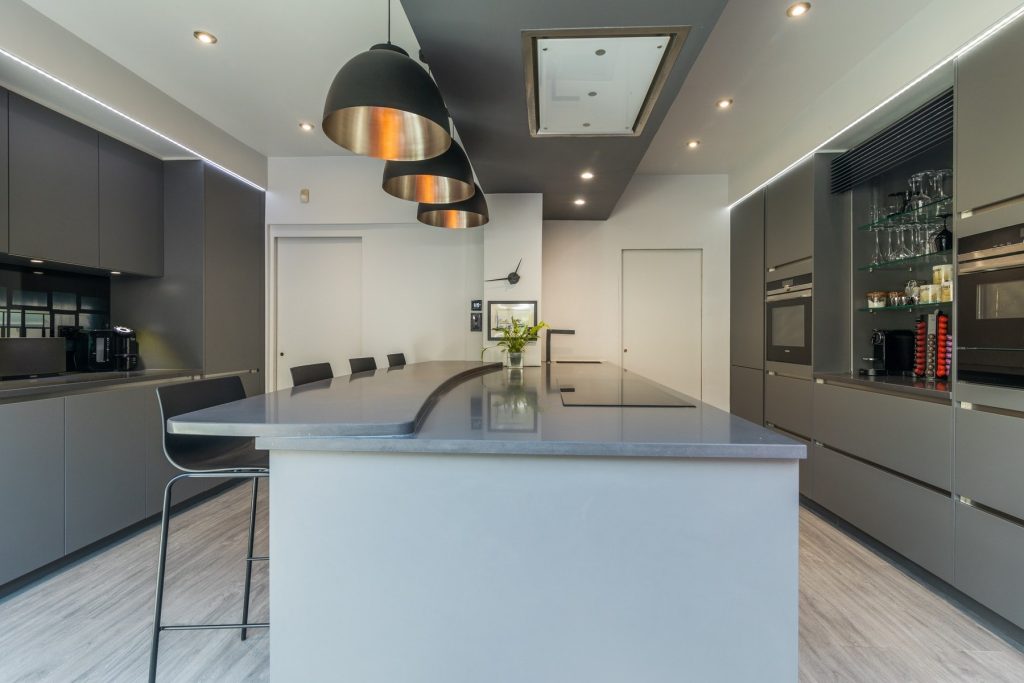
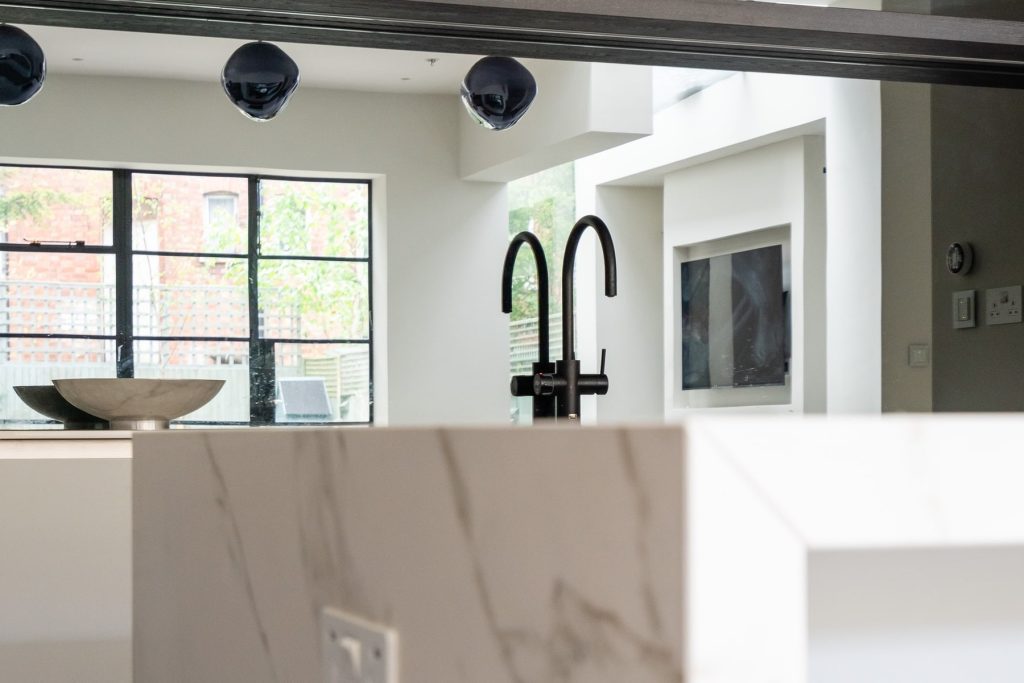
Cost Comparison: Porcelain vs. Other Worktop Materials
Porcelain Worktops Pricing vs Granite Pricing
While porcelain worktops offer a modern appeal and uniform design, granite boasts natural uniqueness with each slab. In terms of pricing, porcelain typically falls within a similar or slightly higher range than granite, with the latter’s price often influenced by rarity and origin.
Porcelain Worktops Pricing vs Quartz Pricing
Quartz is a manufactured stone that offers a consistency in design that natural stones can’t. Its pricing is usually comparable to porcelain, but specific high-end quartz designs can be pricier. Both materials represent an ideal blend of durability and aesthetics, making their costs often closely matched.
Porcelain Worktops Pricing vs Sintered Stone Pricing
Sintered stone is an ultra-compact surface crafted at high temperatures, offering remarkable durability. Typically, sintered stone and porcelain worktops have overlapping price ranges. However, certain luxury sintered stone brands might command a higher price than their porcelain counterparts.
Frequently Asked Questions about Porcelain Worktops Pricing
Why do porcelain worktops have such a vast price range? Porcelain worktop prices can vary due to brand reputation, design uniqueness, installation costs and additional features you want to add.
Does porcelain’s durability justify the cost? Due to porcelain’s longevity and incredible resistance to daily wear and tear, it can be said that its quality certainly justifies the cost.
Is DIY installation possible? While installing a porcelain worktop yourself is possible, professional installation is often recommended to prevent damage and ensure a perfect fit for your kitchen.


Find Your Ideal Porcelain Worktop Today
Porcelain worktops, with their blend of functionality and aesthetics, offer undeniable value. While their price might be on the higher end of the spectrum, the long-term benefits—durability, low maintenance, and timeless beauty—make them a worthwhile investment. As you consider this option for your space, weigh the upfront costs against the lasting benefits. If you’re unsure of whether or not you want to commit to this material, reach out to our Walthamstow worktop experts at Net Worktops today! We’ll help you find a worktop that’s just right for your style and budget.
Book A Design Appointment
